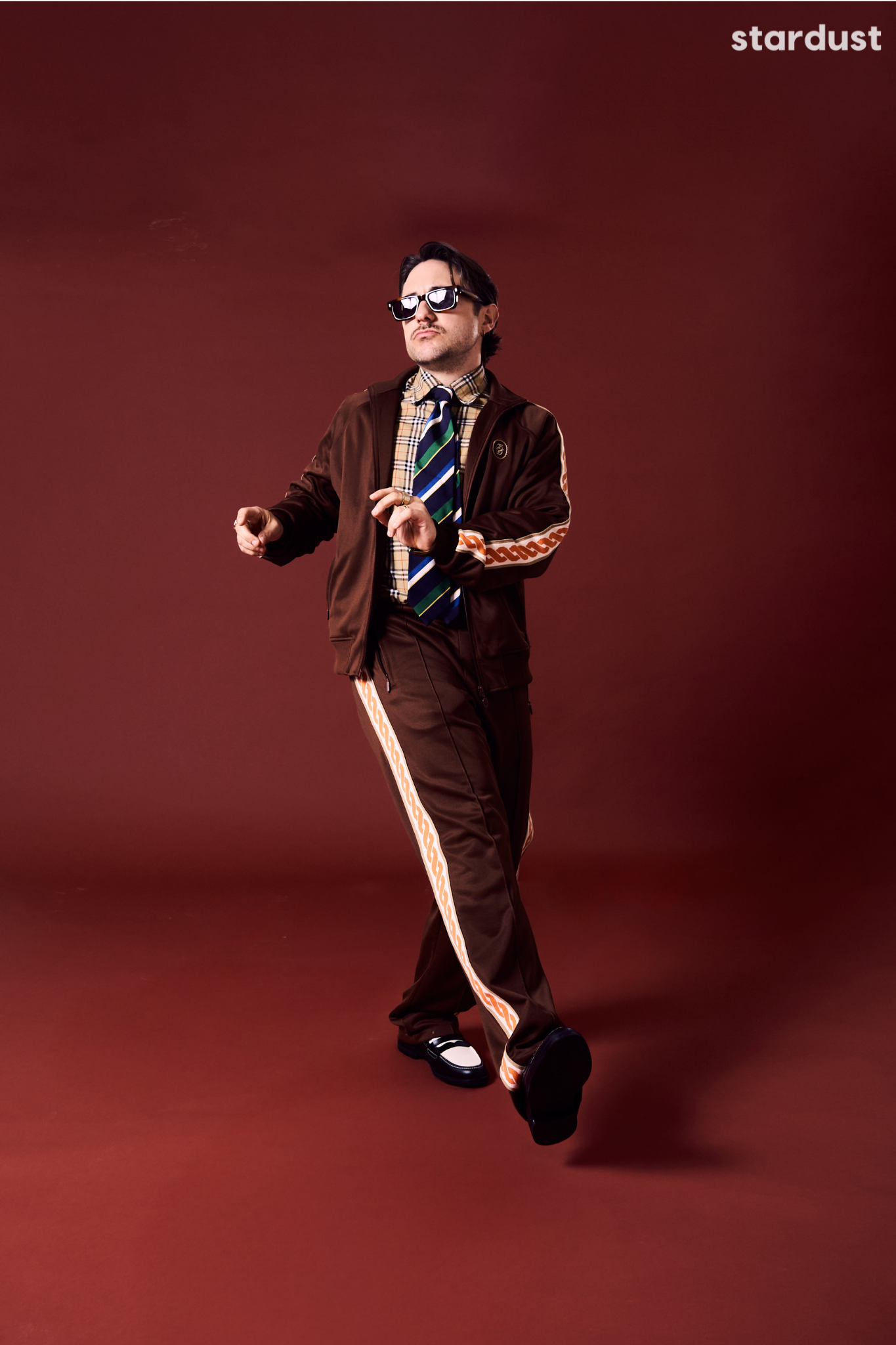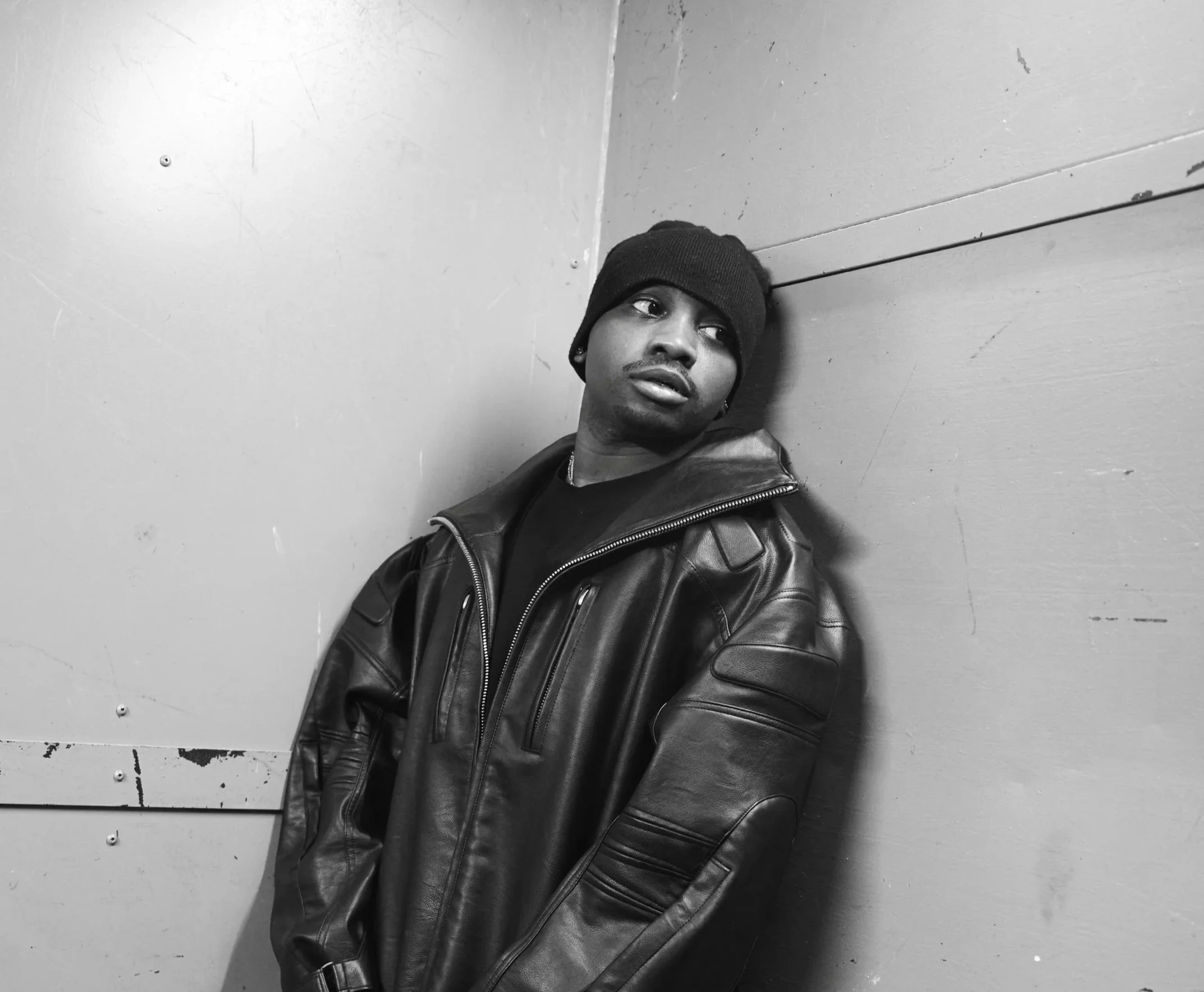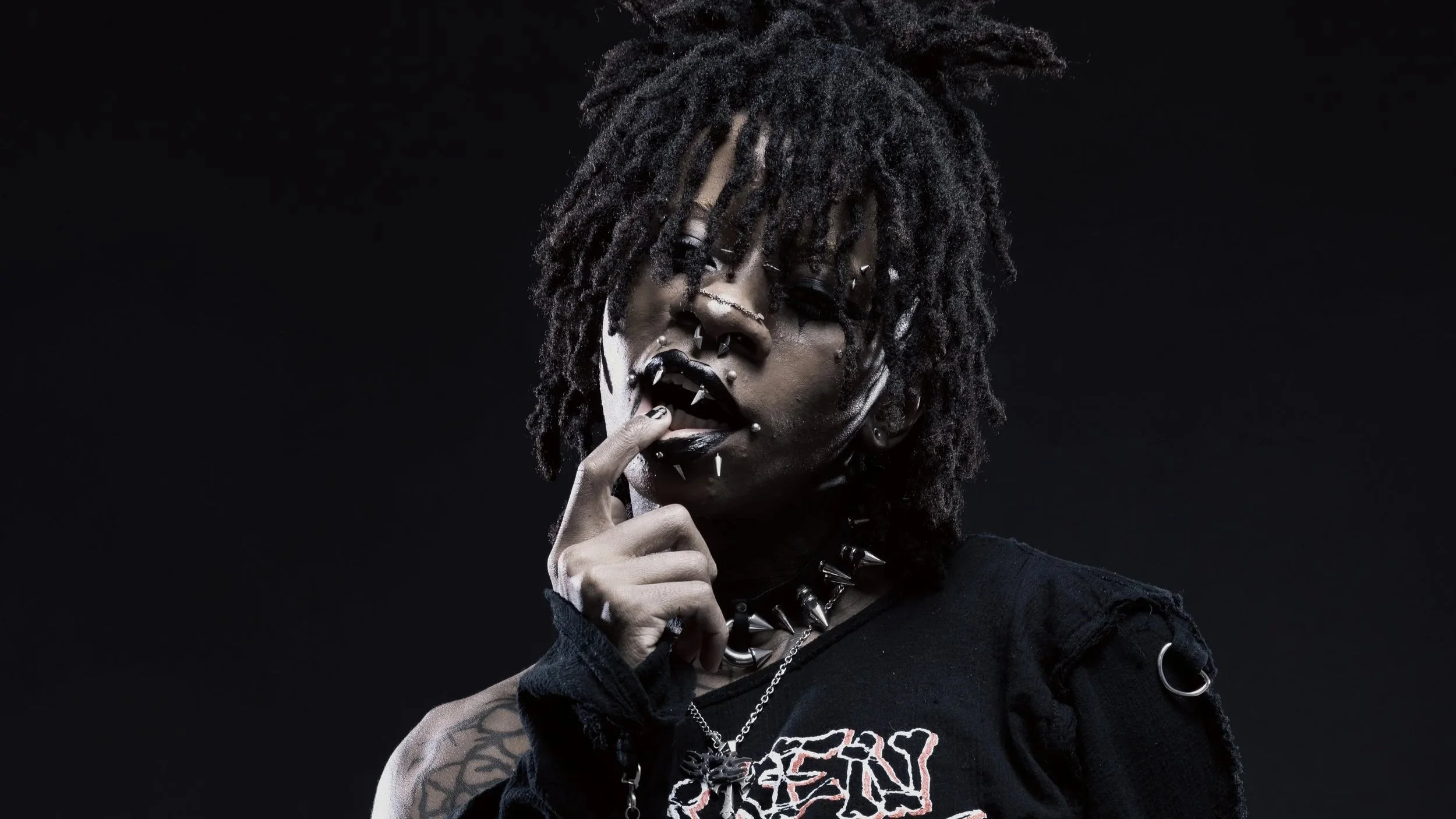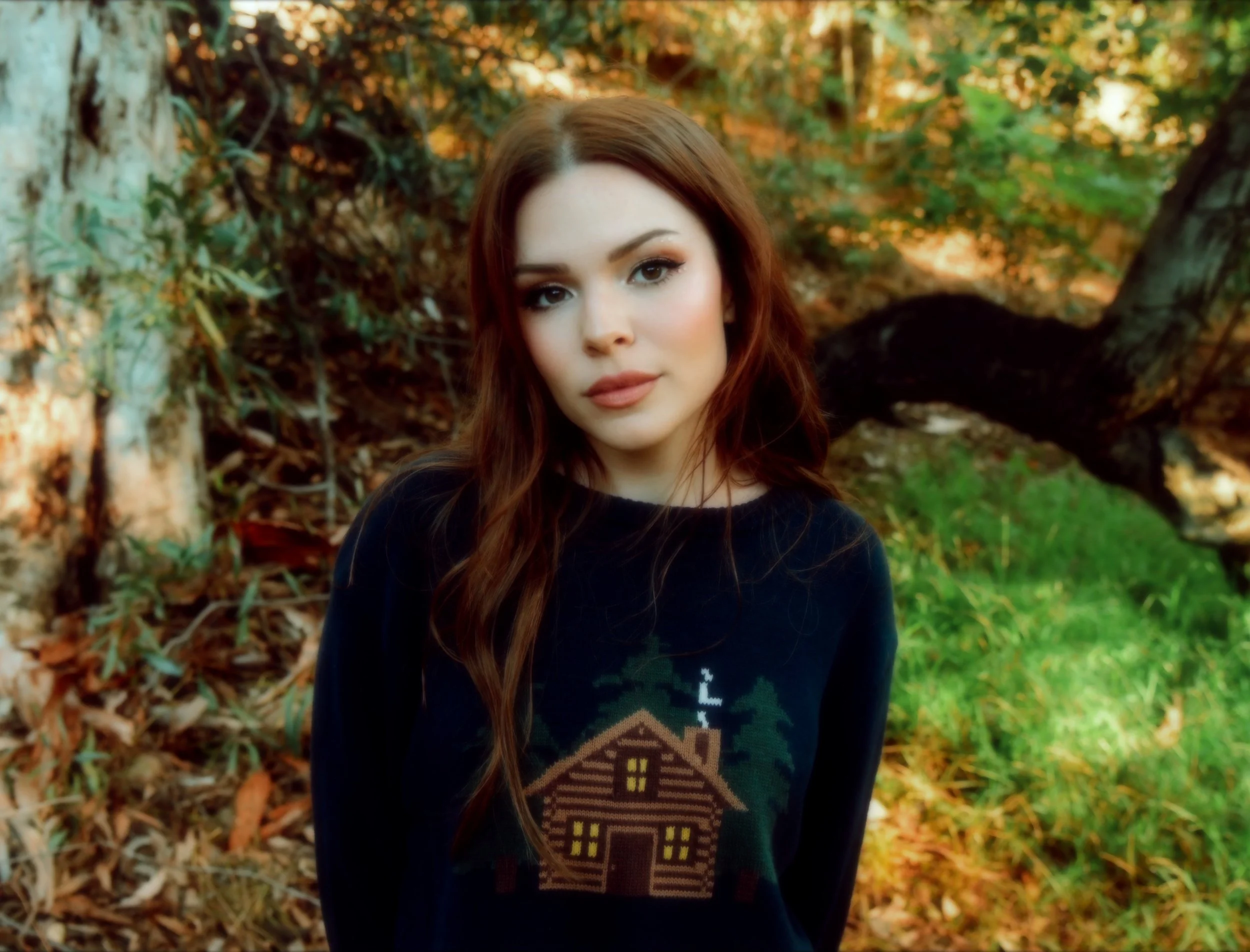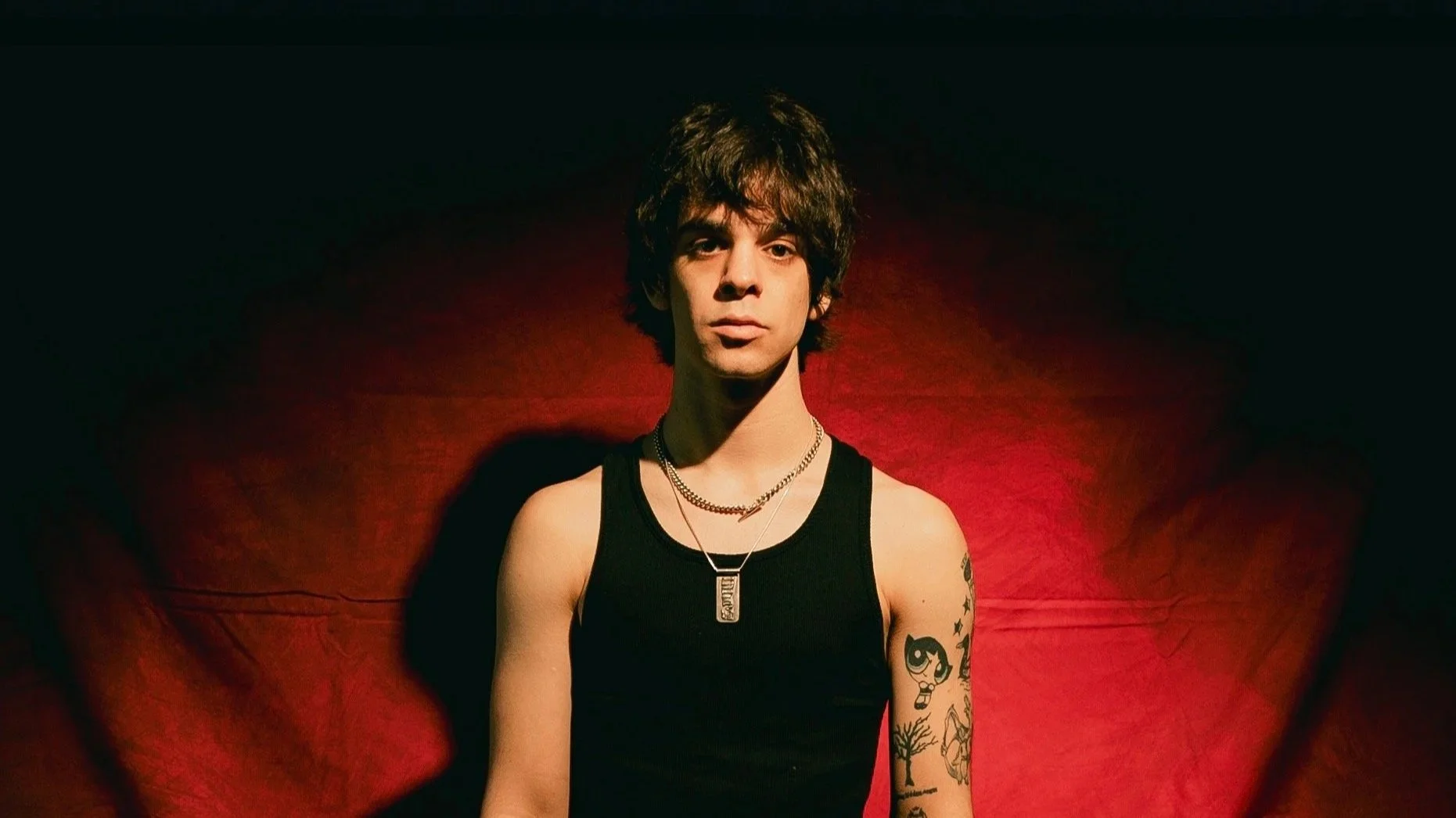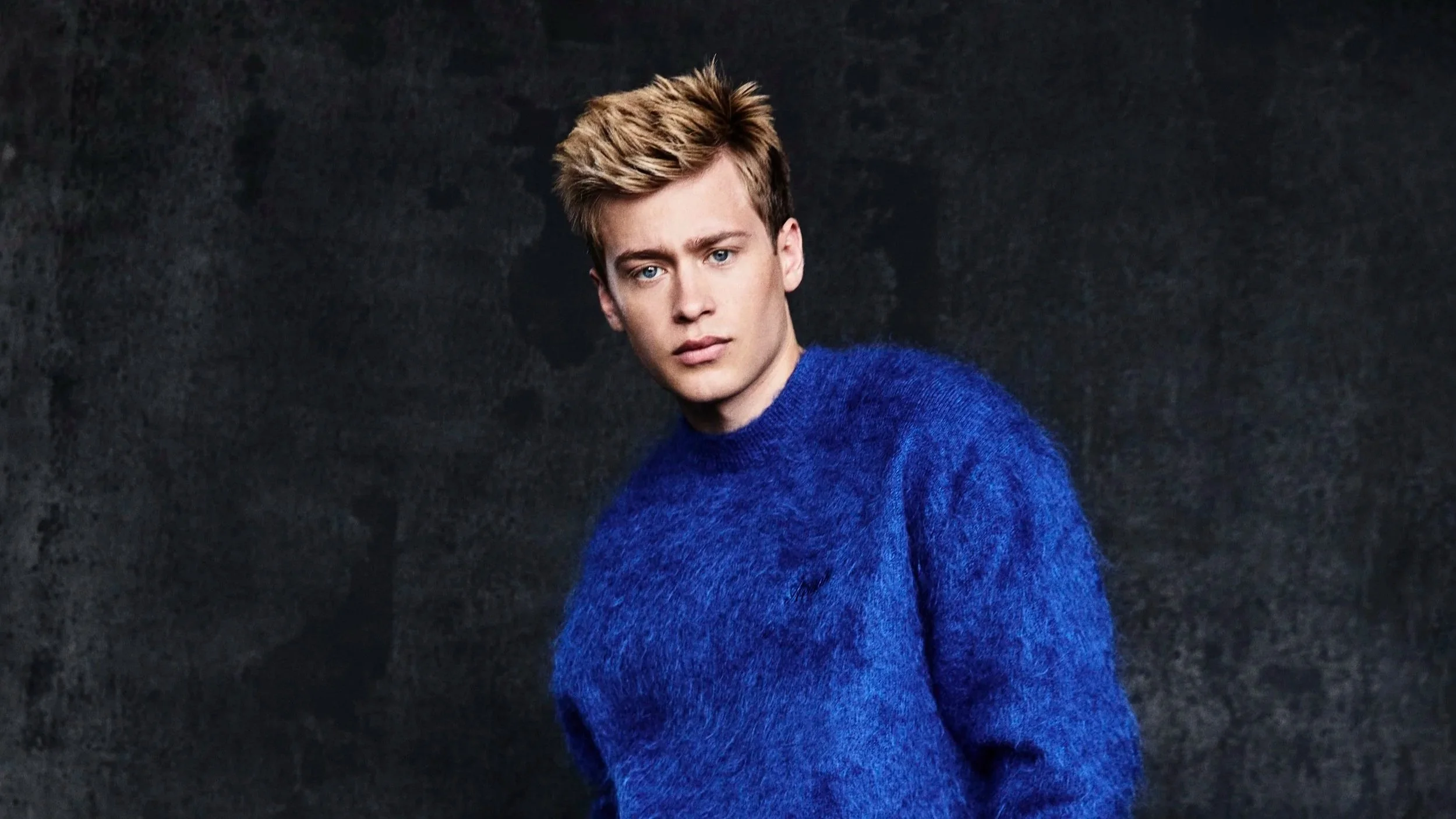Ryan Sampson Gets Personal with Mr. Bigstuff
Yorkshire-born actor and writer Ryan Sampson has steadily become one of British comedy’s most distinctive voices—celebrated for his sharp wit, recognizable character work, and ability to draw emotional depth from the most unexpected places. In fact, over the past decade, he’s carved out a dynamic career across television, stage, and film, evolving from standout ensemble roles to a creative force behind the camera.
His latest project, Mr. Bigstuff, just returned with Series 2 exclusively on Sky. Co-starring Danny Dyer, the comedy-drama tackles masculinity, mental health, and family dysfunction with a mix of irreverent humor and emotional honesty. In the series, Sampson stars as Glen, a soft-spoken carer whose quiet routine is upended when his estranged and chaotic brother re-enters his life. Season 1 initially drew praise for its sharp writing and grounded performances, and the new season promises even richer character arcs—while keeping its offbeat charm firmly intact. Though if that wasn’t enough to keep him busy, Sampson also continues his role in Sky’s long-running hit Brassic, where he plays the unpredictable and wildly entertaining Tommo.
Now, the multi-faceted creative is opening up to Stardust about his roles, inspirations, life experiences, and what’s next.
Mr. Bigstuff is your own creation—what inspired the concept?
Ryan Sampson: It’s a mix of influences, to be honest. You set out trying to write something that you’ve just created—that you’ve plucked from the ether. Then inevitably, as you write the story, all these bits of your own life worm their way in there. Ultimately, I lost my mum a few years ago, and she was like the central point that the rest of us in the family were fixed around. Without her, we lost our link—the link between each other, and it fractured us apart. And so I’ve written a show about estranged brothers who find their way back together, maybe in an effort to make a family come back together in real life. I dunno, maybe it’s something like that. Plus, I just want to see Danny Dyer fighting a load of old-age pensioners in a bar brawl, so there’s a fair amount of sheer wish fulfilment.
Series 1 struck a balance between comedy and vulnerability. How does Series 2 build on that tone?
Ryan Sampson: Series 2 builds on that in a way I’m really pleased with. I think we did a ton of work setting up the characters and their back stories in Series 1, so now we can have a load more fun with them. And now there’s a new objective—this odd couple, these two brothers, are united in the hunt for their dad. It’s a mission that sees them in some pretty hilarious palaces, but also—just a warning—it’s gonna get emotional…
Your chemistry with Danny Dyer is electric—how did that collaboration come about?
Ryan Sampson: To be honest, I got so lucky with Danny. Firstly, that he wanted to do it—I wrote it for him, I’d have been fucked if he didn’t want to—and secondly, that we work so well together. There’s something about our energies, even our way of working, that’s just very opposite and yet complementary. I’ll think out every angle of a scene before we film it—poring over tiny tweaks and ways to play it. Whereas he’s a very instinctive actor whose brilliant honesty comes from how ‘in the moment’ he is. Being with him on set is stupidly fun—it’s like having an actual big brother.
Masculinity and family are central themes in Mr. Bigstuff. How does the upcoming series contribute to those particular elements?
Ryan Sampson: The themes of masculinity and family run right through the show, but look, I don’t want to hit people over the head with them. It’s a slightly unhinged comedy-drama, not a Dutch art house piece with lots of wistful looks at cornfields. However, personally, I think that’s how you get a message through to people; in the subtext, through the back door. If you get people laughing, you get people listening. And if it makes just a couple of people question the gender roles that they’re allotted, maybe even wonder if they want to embark on a sub/dom relationship where the female wields the spatula—mini Series 2 spoiler there—then that would be the dream.
Considering you've both written and acted in the show, how have those roles informed or influenced each other?
Ryan Sampson: It’s weird, I think if I hadn’t written the show, I’d have done more work on the character. Normally, I spend a lot of time inventing the character beyond what’s on the page. But being as what’s on the page is how I imagine Glen saying the lines - there’s no reinventing the script. Maybe that’s for worse, or maybe—being as the lines that come out of my head are delivered exactly how they’re intended—it could be better. Honestly, I’ve got no idea, I’m just hoping for the best.
You’re also back filming Brassic—what’s been your favorite thing about stepping back into that role?
Ryan Sampson: My favorite things about stepping into Brassic are: one, I have never laughed, possibly will never laugh, as much in any one day than when I’m on that show. Me and Joe (Vinnie) and Tom (Cardi) sort of competitively make each other laugh, it’s excellent. And two being Tommo. There’s something very addictive about stepping into a character who almost has his own life; he’s been around so long. It’s amazing getting to be this ridiculously confident man. Weirdly, I’m going to miss him.
From Plebs to Mr. Bigstuff, your characters often have big hearts beneath the chaos. Is that a pattern you’re drawn to?
Ryan Sampson: Yeah, I’ve always enjoyed that kind of comedy. I also really love black comedy, dark undertones, and the two aren’t mutually exclusive. I love a show where there’s darkness—bleakness even—but you keep coming back to the characters because you know that on some level—even if it’s really deep down, they love each other.
Finally, with Mr. Bigstuff gaining momentum, what are your hopes for the future of the series—or your next writing venture?
Ryan Sampson: I want to be a show runner. It’s a title that exists in the US but not so much here, where you are across lots of areas of the production of a show. At the moment I’m lucky enough to have a big role in the edit of our show, and I’m even luckier that the music for the show is almost exclusively the tracks that I’ve found and love. It’s something I’d like to do more going forward—I don’t just want to write it or act it, I’d like to shape it, the whole identity.



